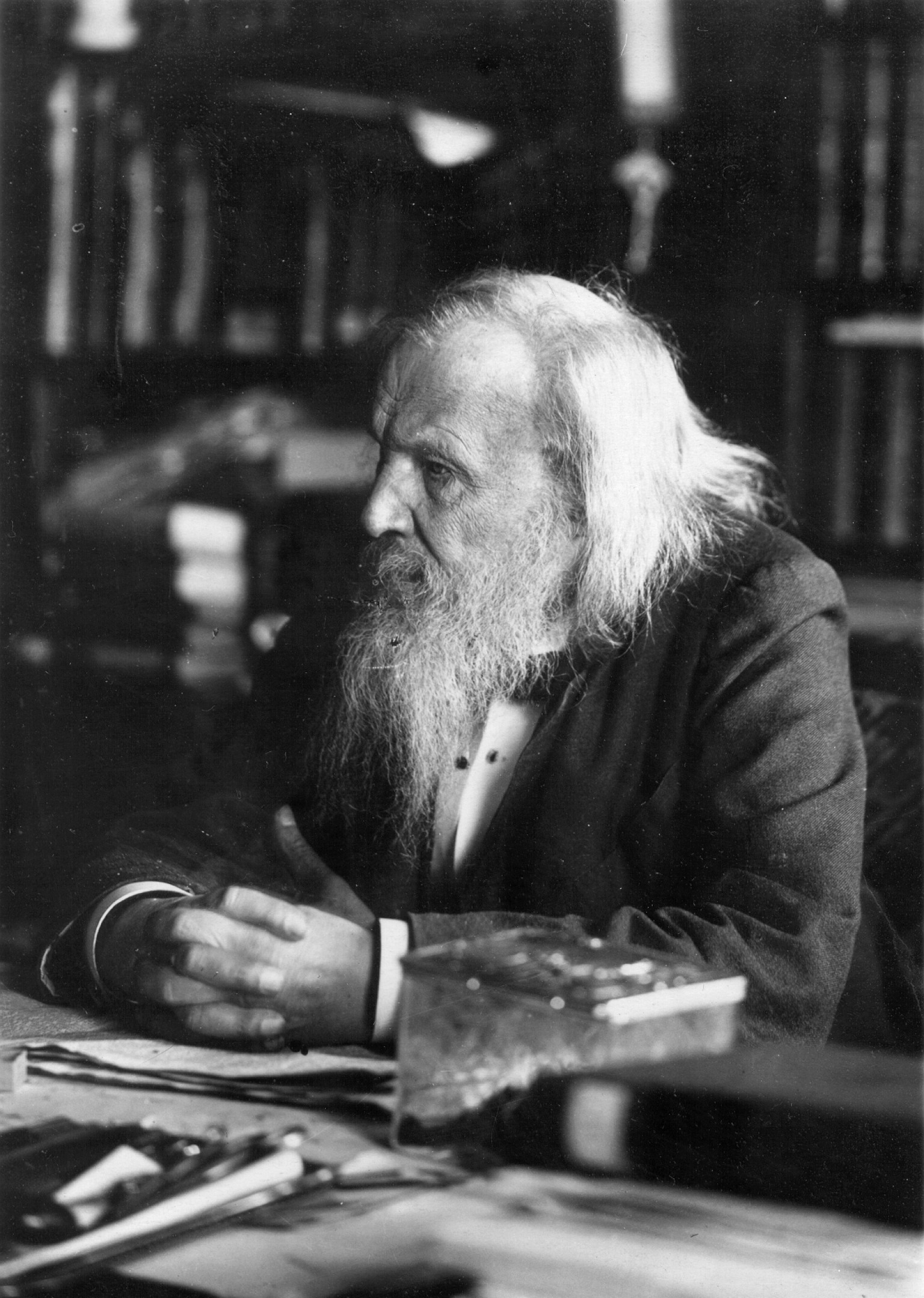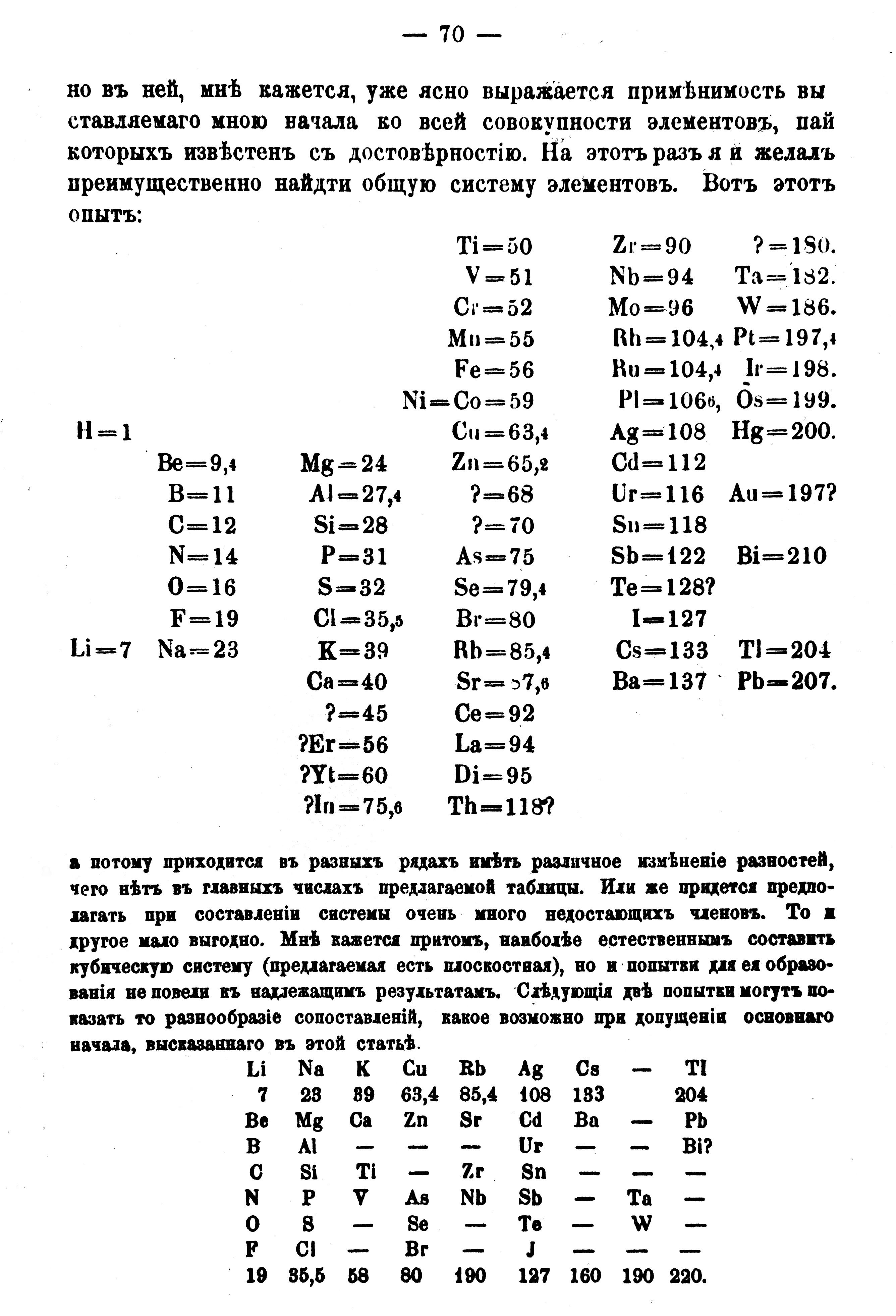Mendeleev, Dmitri Ivanovich, << `mehn` duh LAY uhf, DMEE trih ih VAH nuh vihch >> (1834-1907), was a Russian chemist who developed a form of the periodic law, a basic principle in chemistry. His law states the properties of chemical elements recur in regular patterns when the elements are arranged according to their mass (amount of matter). Mendeleev’s work, together with that of the German chemist Julius Lothar Meyer, led to the periodic table, a systematic arrangement of the elements (see Element, Chemical [Periodic table of the elements]).


In 1869, Mendeleev proposed his arrangement of the elements in order of increasing mass and according to similarity in properties. Mendeleev’s table had blank spaces for unknown elements. Later, using the periodic law, he predicted the properties of three unknown elements. His predictions were confirmed by the discovery between 1875 and 1886 of three elements with these properties. Mendeleev also discovered the phenomenon of critical temperature, the temperature at which a gas or vapor may be liquefied by pressure. He was born in Tobolsk, Russia, on Feb. 8, 1834, and died on Feb. 2, 1907.
